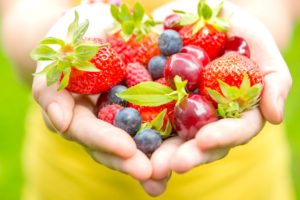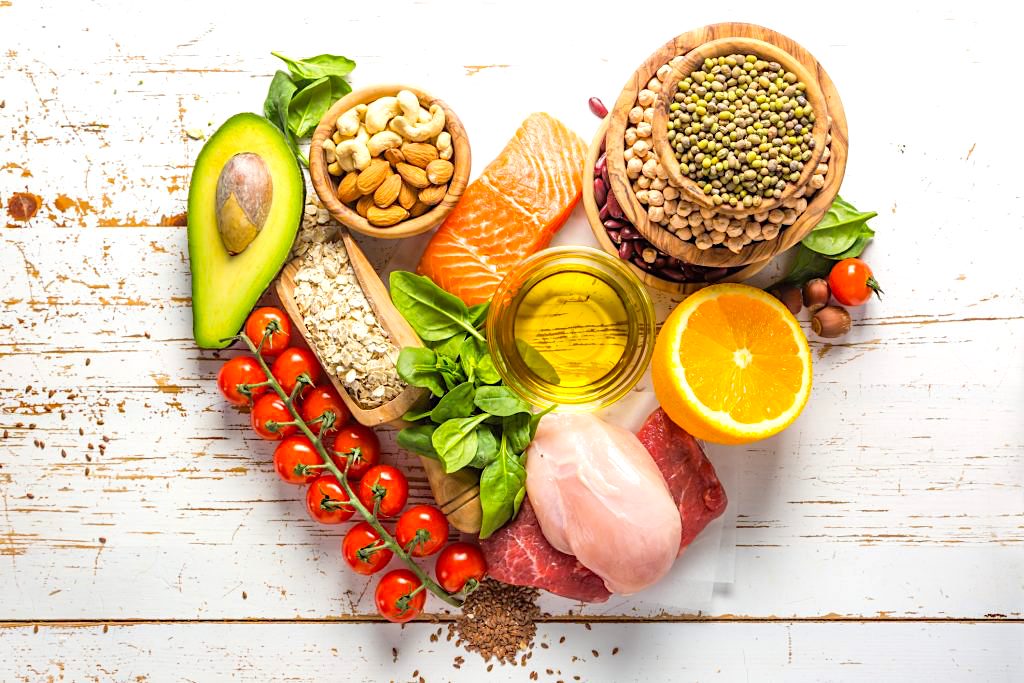What is organic food?
Organic food is produced by methods that comply with the standards of organic farming, standards of which vary worldwide. Generally, organic farming features the cycling of resources, promoting ecological balance, and the conservation of biodiversity. Organizations regulating organic products can restrict the use of certain pesticides and fertilizers in the farming methods used to produce such products. Organic foods normally are not processed using irradiation, industrial solvents, or synthetic food additives.
Organic farming practices are designed with the following goals in mind:
- To enhance soil and water quality
- To reduce pollution
- To provide safe, healthy livestock habitats
- To enable natural livestock behavior
- To promote a self-sustaining cycle of resources on a farm
Materials or practices which are not permitted in organic farming include:
- The use of synthetic fertilizers to add nutrients to the soil
- The use of sewage sludge as fertilizer
- The use of synthetic pesticides for pest control
- The use of irradiation to preserve food or to eliminate disease or pests
- The use of genetic engineering to improve disease or pest resistance or to improve crop yields
- The use of antibiotics or growth hormones for livestock
Organic farming practices for livestock include:
- Healthy living conditions and a designated amount of time with access to the outdoors
- Pasture feeding for at least 30 percent of livestock’s nutritional needs during the grazing season
- Organic feed for the animals
- Vaccinations
Organic food: Is it safer or more nutritious?
There is a growing body of evidence that shows the potential benefits of eating organic foods when compared with non-organic, conventionally grown foods. However, there is limited information to draw conclusions about how these differences translate into overall health benefits.
Potential benefits include the following:
- Nutrients. Studies have shown slight increases in certain nutrients in organic produce. One of the most substantial pieces of evidence is a significant increase in certain types of flavonoids, which have antioxidant properties.
- Omega-3 fatty acids. Some practices, such as the feeding of organic livestock, requires the primary use of grass and alfalfa for cattle, resulting in overall higher levels of omega-3 fatty acids. These higher omega-3 fatty acids, a fat that is more heart-healthy than others, are found in organic meats, dairy, and eggs.
- Toxic metal. Cadmium is a toxic chemical found in soils and absorbed by plants naturally. Studies have shown significantly lower cadmium levels in organic grains (though not fruits and vegetables) when compared with conventionally grown crops. The lower cadmium levels in organic grains could be due to a ban on synthetic fertilizers in organic farming.
- Pesticide residue. Organically grown produce has been shown to have lower detectable levels of pesticide residue. The difference in health outcomes is unclear due to the safety regulations for maximum levels of residue allowed on conventional produce.
- Bacteria. Meats produced conventionally may have a higher occurrence of antibiotic-resistant bacteria.
The next question you might ask is, should I be eating organic or not? Nowadays there are so many choices at the supermarket. Should I pay more for organic foods or stick with conventional ones? Studies have shown that pesticides can impact various foods differently. Here is a list of our recommendations.
Food to be eaten organically: studies have shown that these foods tend to absorb large amounts of pesticides, so buy organic when you can:
- For fruits, there are apples, strawberries, peaches, grapes, pear, cherry,
- For vegetables, there are green lettuce and salad leaves, cucumbers, spinach potatoes, pepper
- Eggs
- Dairy products made of cow’s milk
- Whole grains
- Beef and chicken
- Olive oil
- Cucumbers
- Tomatoes
- Green Lettuce & Salad leaves
- Blueberries
- Peppers
- Kale and other leafy greens
- Green bean
- Oranges and Tangerines
- Raspberries
- Carrots
- Zucchini

These foods are safe to eat conventional (non-organic): studies have shown that they absorb little to no pesticides
- Corn
- Avocadoes
- Pineapples
- Cabbage
- Onions
- Peas
- Papaya
- Asparagus
- Mangoes
- Eggplants
- Kiwis
- Melons
- Cauliflower
- Grapefruit


